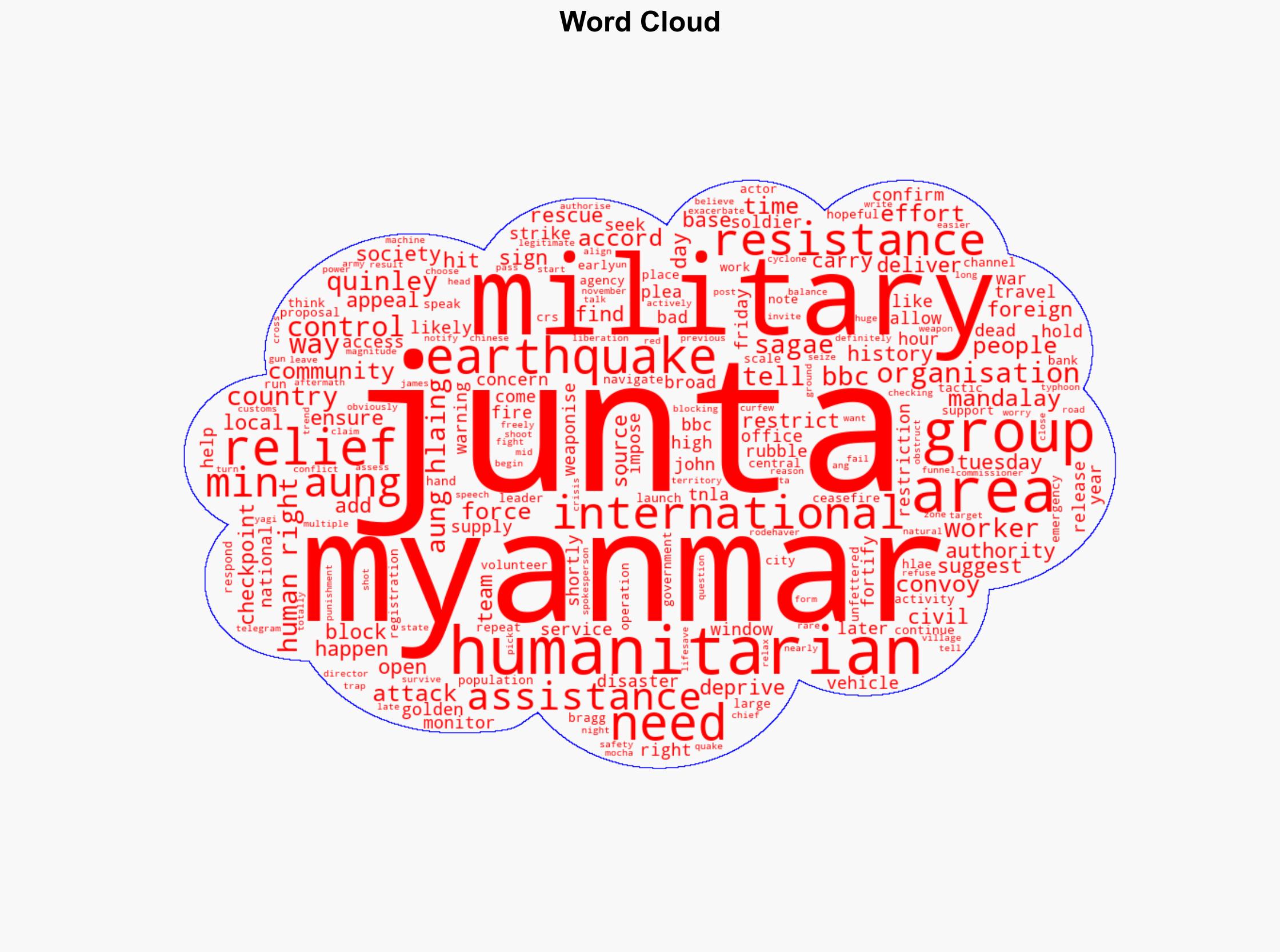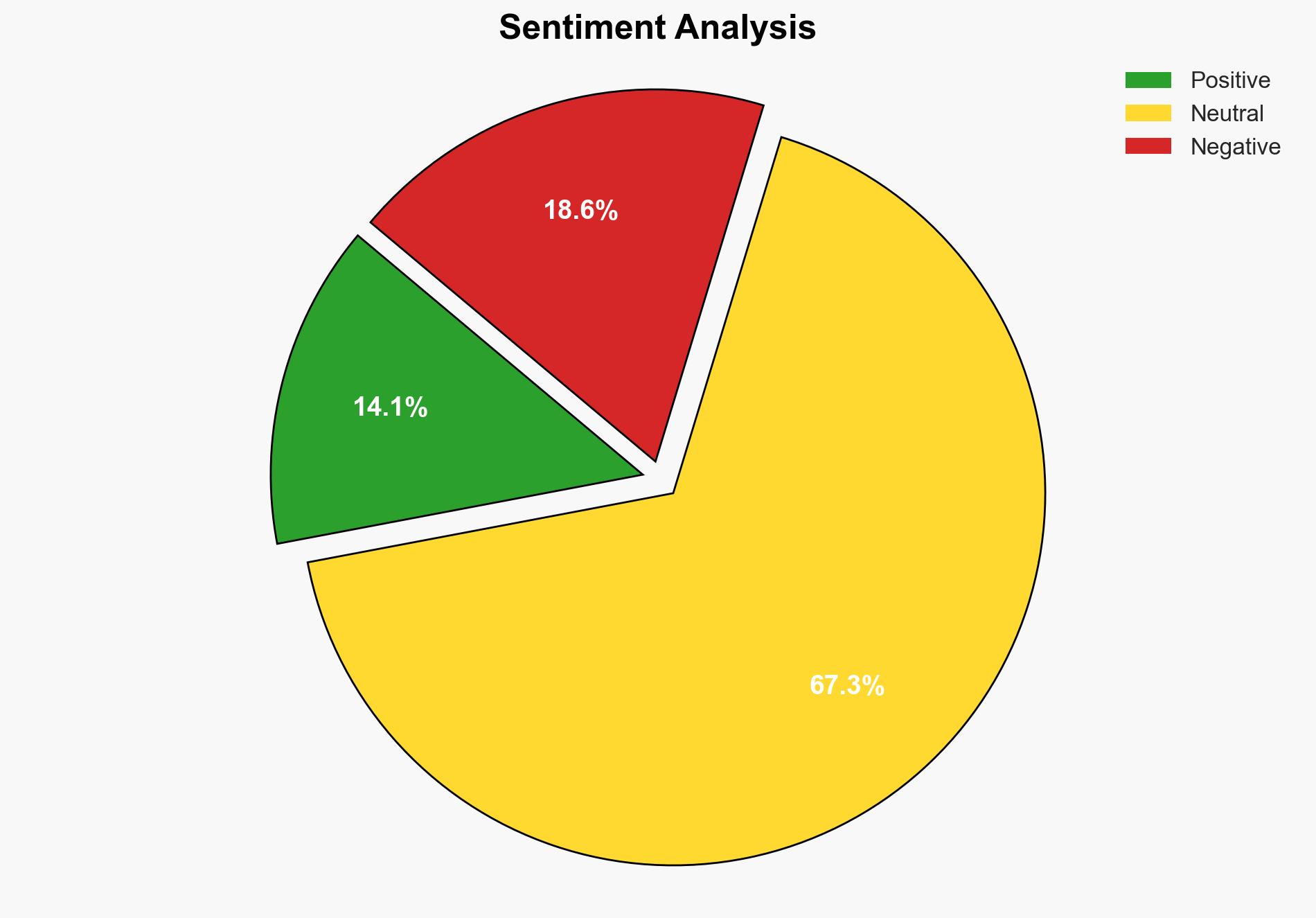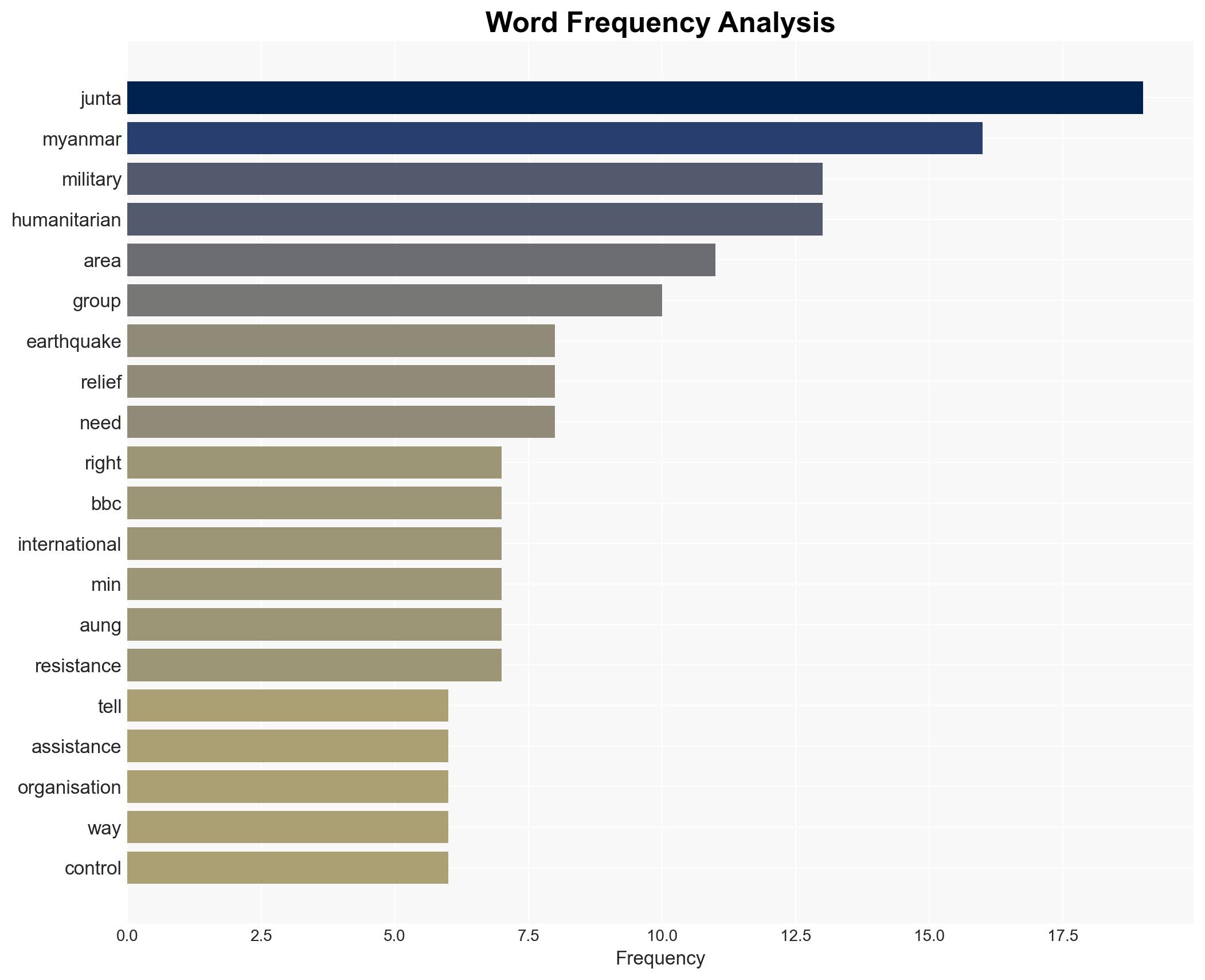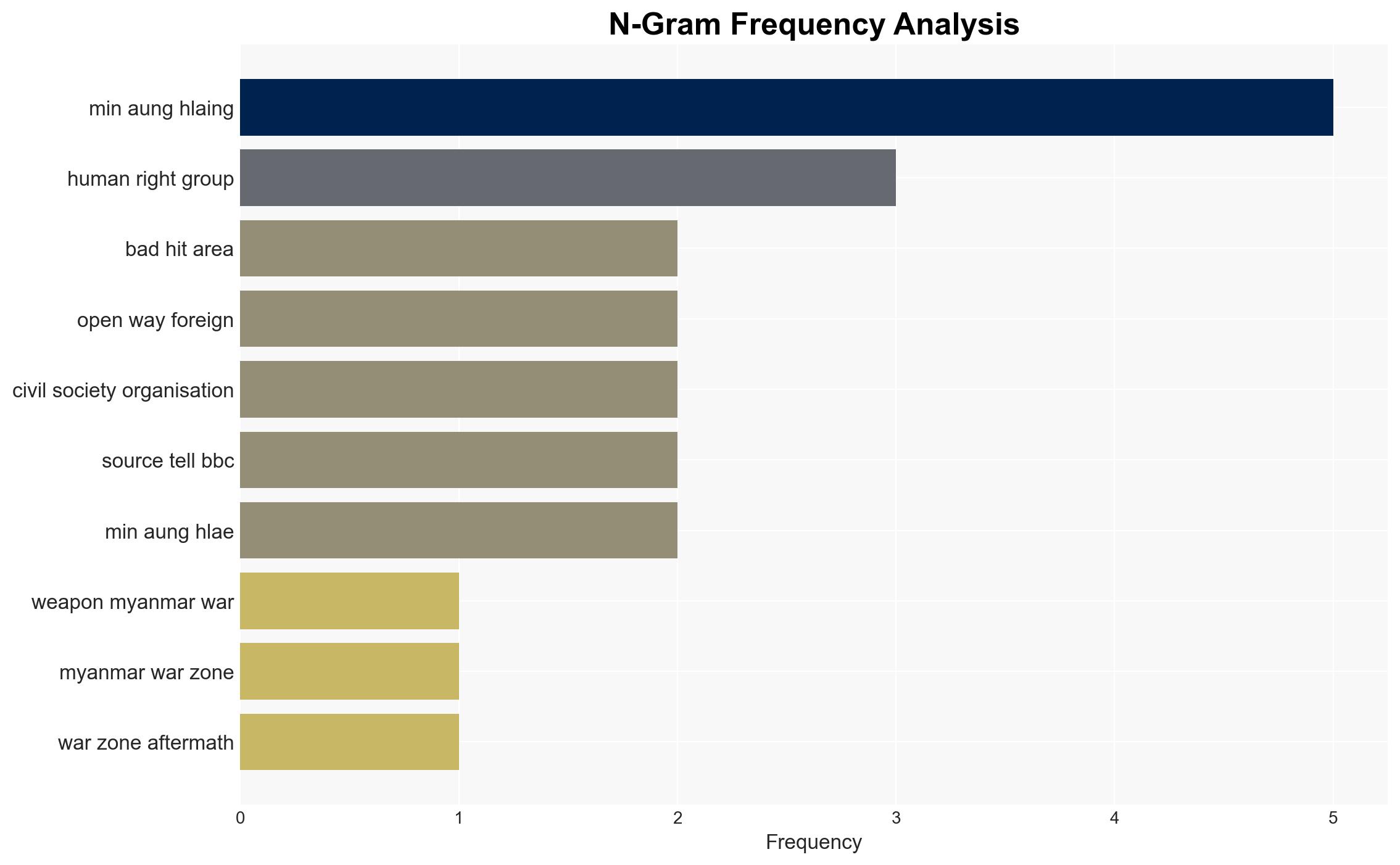How aid becomes a weapon in Myanmar’s war zone – BBC News
Published on: 2025-04-02
Intelligence Report: How aid becomes a weapon in Myanmar’s war zone – BBC News
1. BLUF (Bottom Line Up Front)
The Myanmar military, referred to as the junta, is reportedly obstructing humanitarian aid efforts following a recent earthquake. This obstruction is seen as a tactic to control and punish areas aligned with resistance groups. The strategic use of aid as a weapon exacerbates the humanitarian crisis, affecting the delivery of essential supplies and services. Immediate international intervention is recommended to ensure aid reaches affected populations without military interference.
2. Detailed Analysis
The following structured analytic techniques have been applied for this analysis:
General Analysis
The earthquake in Myanmar has created a critical need for humanitarian assistance. However, the military’s control over aid distribution channels is limiting the reach of relief efforts. Reports indicate that the junta is selectively allowing aid into areas under its control while restricting access to regions held by resistance groups. This strategic manipulation of aid serves as a form of punishment against populations perceived to support opposition forces.
3. Implications and Strategic Risks
The obstruction of aid poses significant risks to national security and regional stability. Humanitarian crises can lead to increased displacement, further destabilizing the region. The military’s actions may also damage Myanmar’s international relations, as global entities may view these tactics as violations of humanitarian principles. Economic interests are at risk due to potential sanctions or reduced foreign aid and investment.
4. Recommendations and Outlook
Recommendations:
- International organizations should pressure the Myanmar military to allow unrestricted humanitarian access.
- Implement monitoring mechanisms to ensure aid reaches intended recipients without interference.
- Encourage diplomatic engagement to address the broader conflict and promote peace negotiations.
Outlook:
Best-case scenario: International pressure leads to the junta allowing full humanitarian access, stabilizing the situation and reducing human suffering.
Worst-case scenario: Continued obstruction exacerbates the humanitarian crisis, leading to increased casualties and regional instability.
Most likely outcome: Partial access is granted under international pressure, but significant challenges remain in delivering aid to resistance-held areas.
5. Key Individuals and Entities
The report mentions significant individuals and organizations, including Min Aung Hlaing, John Quinley, and James Rodehaver. Key entities include the Ta’ang National Liberation Army and the Chinese Red Cross Society.





